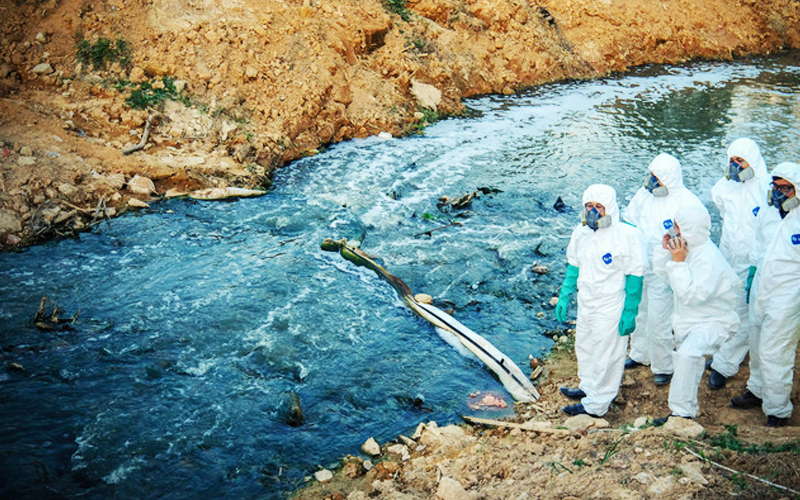
More than a week has passed since the nation was shaken by news of the environmental disaster at Sungai Kim Kim, Pasir Gudang, Johor, which affected close to 3,000 people including numerous children, with some still in critical condition.
Work to clean up the toxic waste dumped into the river and to treat the victims at various hospitals across Johor is proceeding at a furious pace, and in true Malaysian spirit, calls are being made for everyone from the prime minister down to be blamed for this mess-up.
While it is easy to dismiss talk in press conferences of how “people are suffering on the ground” and how “someone should pay”, it is perhaps a good time to take a step back and look a little closer into the health of our environment and the regulations surrounding this. In the end, it is our own health that is impacted.
This is the first lesson from the Sungai Kim Kim disaster: if the health of the environment is degraded, the health of people very quickly follows suit.
Health is not just the affair of healthcare professionals. It is the joint responsibility of every branch of industry, government and society. By working together in their own fields, everyone contributes to better health.
Sounds vague? Let me elaborate using the example at hand.
The toxic waste accumulated in Sungai Kim Kim because of illegal dumping practices and the industry’s failure to clean up its effluents. The state authorities were supposed to monitor the river’s overall well-being but failed to highlight or take action on its abysmal condition.
The state environmental control authorities were unable to halt the pollution by taking the offenders to task or even to initiate clean-up measures. As a result, the toxic waste damage was so bad that it began to affect people’s health.
Notice something? Although the health problems were the end result, healthcare professionals had little or no input or control over the upstream processes which led to the disaster. It was within the purview of other stakeholders who perhaps did not realise the severe consequences of their inaction.
That is the second lesson: your actions (or inaction) often have far-reaching consequences on the health of others. This is because many factors are related to our overall health. Many a times, our “tidak apa” attitude about our responsibilities leads to a whole segment of society having to bear the consequences.
Nothing I am saying here is new. In 2013, the World Health Organization issued a Helsinki Statement recommending a strategy for “health in all policies” – an approach where all sectors take into account the health implications of decisions and avoid harmful health impacts in order to improve the overall health of the population.
Many times, when highlighting this concept, I hear people saying, “Ah, so now the doctors want to push their job on us.”
I actually agree.
Health is everyone’s job, not only that of healthcare professionals. Malaysians need to wake up to the fact that their actions (or inaction) may impact the health of others, even their own loved ones. Only when we take on that responsibility will things – hopefully – change a little.
Many people might have been turned off by the earlier paragraph. “It’s not my job. All these government fellows should be doing their job to take care of the environment,” you might think. Well, you’re wrong.
Each of us has a responsibility, too. Malaysians love to keep their houses clean, but the drains outside are clogged and overflowing with rubbish or kitchen waste. It’s the small drains that lead into streams and finally into rivers like Sungai Kim Kim.
Here’s the third lesson: everybody needs to do their part in keeping the environment clean, starting from the drains outside our homes. It’s hard to realise that dumping the leftover oil from frying fish into the drain near your kitchen might cause an environmental disaster, but that’s exactly the attitude everyone is taking – including the chaps who dumped all that waste into Sungai Kim Kim. “It can’t be that bad because of me, right?”
Sungai Kim Kim is not the only river in Malaysia to be this badly polluted. It’s only the first where the health effects are being felt by so many people at once. We need to stop our toxic “tidak apa” attitudes and irresponsible, nonchalant behaviour towards our environment.
Only when our rivers are healthy can our people be healthy, too. Please join me in my prayer for all victims and their families, for a quick recovery, and for the safe and speedy completion of the rescue and clean-up operations.
Dr Murallitharan M is a public health physician and director of the National Cancer Society Malaysia. - FMT


No comments:
Post a Comment
Note: Only a member of this blog may post a comment.